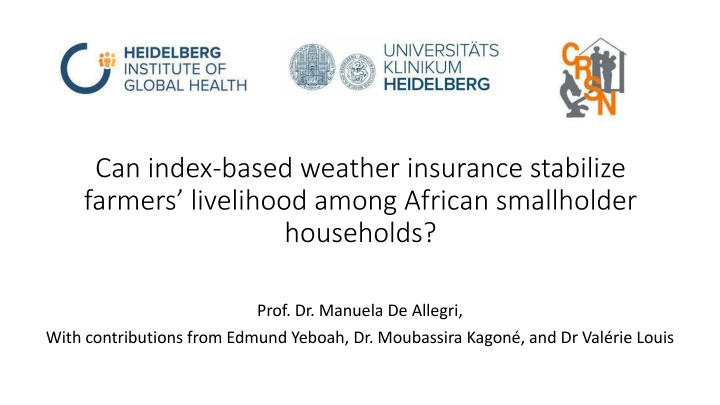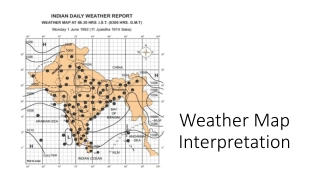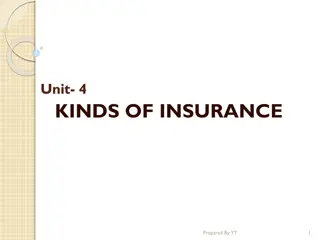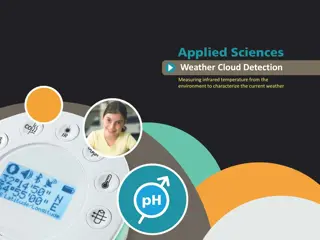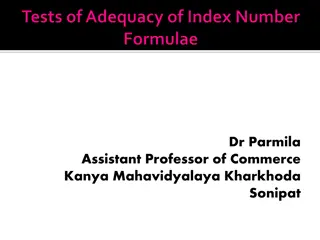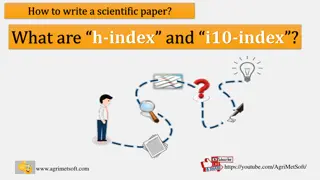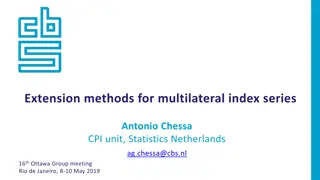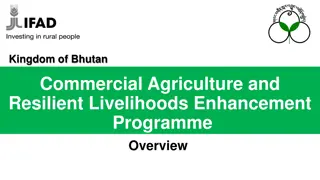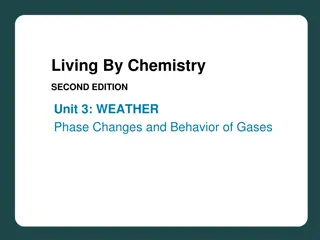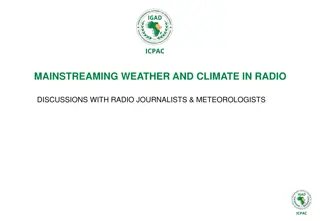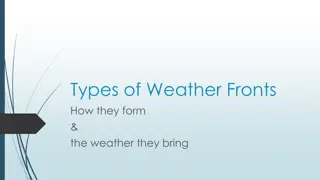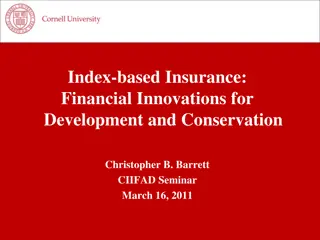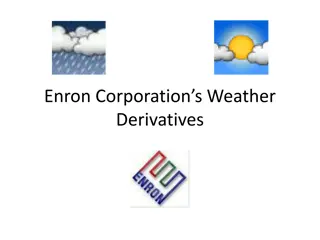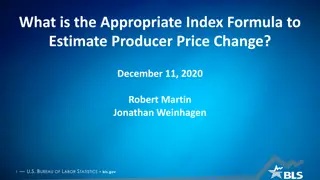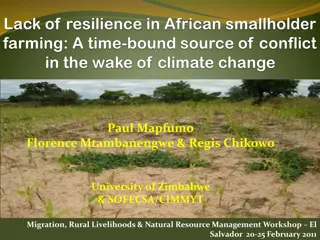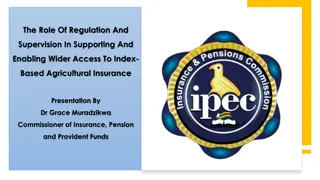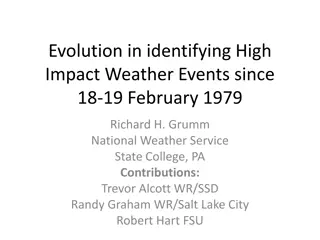Index-Based Weather Insurance for African Smallholder Livelihood
High subsistence farming in Africa is vulnerable to weather risks, leading to impoverishment and poor health. Index-based weather insurance offers compensation for lost agricultural production, enhancing food security and protecting assets. This policy solution breaks the vicious cycle by linking insurance payouts to weather indexes.
Download Presentation

Please find below an Image/Link to download the presentation.
The content on the website is provided AS IS for your information and personal use only. It may not be sold, licensed, or shared on other websites without obtaining consent from the author.If you encounter any issues during the download, it is possible that the publisher has removed the file from their server.
You are allowed to download the files provided on this website for personal or commercial use, subject to the condition that they are used lawfully. All files are the property of their respective owners.
The content on the website is provided AS IS for your information and personal use only. It may not be sold, licensed, or shared on other websites without obtaining consent from the author.
E N D
Presentation Transcript
Can index-based weather insurance stabilize farmers livelihood among African smallholder households? Prof. Dr. Manuela De Allegri, With contributions from Edmund Yeboah, Dr. Moubassira Kagon , and Dr Val rie Louis
The problem as we know it High subsistence farming in Africa dependence on Subsistence farming exposes farmers to high risks induced by weather variability Weather enhanced by climate change high temperature, alternance of too much vs too little rain variability is
From weather variability to impoverishment and poor health status Impoverishment & poor health status Weather variability Poor agricultural production Food insecurity Asset depletion
Cumulative rainfall exposure increases children s poor nutritional status Lifetime Cumulative Rainfall by study district Stunting prevalence by study district
Crop Insurance as adaptation strategy to break this vicious cycle Compensation for lost agricultural production Less Index-based weather insurance Food security Assets protection impoverishment Better health status Rainfall variabilty Challenge of crop insurance is loss verification
Index-based Weather Insurance (IBWI) as preferred alternative to Crop Insurance Compensation for lost agricultural production Less Index-based weather insurance Food security Assets protection impoverishment Better health status Rainfall variabilty Index-based weather insurance (IBWI) links insurance payout to a weather index over an area instead of verifying individual-level crop losses A POLICY SOLUTION TO BREAK VICIOUS CYCLE
What we know on IBWI In Mali, IBWI had a positive effect on size of land use and expenditure on seeds (Elabed & Carter 2014). In Ethiopia, insurance influenced farmers risk behavior by boosting uptake of fertilizers (Vargas et al. 2012). Two studies in Kenya found that IBWI guarded against precarious income and asset smoothing strategies (Janzen & Carter 2018) , and insured households enjoyed greater and better food availability (Isaboke et al. 2016). In Rwanda, insured households were observed to enjoy larger income due to crop sales than non-insured ones (Mwe 2016).
What we still need to know on IBWI Limited evidence on impact of IBWI on dimensions of welfare related to health. No study has systematically explored the link between insurance coverage, crop production, food security, dietary diversity, nutritional status, and health status. No study has assessed the impact of IBWI on other health-relevant dimensions, such as health service utilization and expenditure. No study assessing its value for money.
The way forward Further implementation of IBWI for agricultural production investments needed in the development and Further investments needed in research to generate evidence base on welfare impact of IBWI expanding current research trends to include impacts on health
Thank You manuela.deallegri@uni-heidelberg.de
